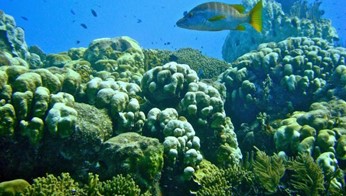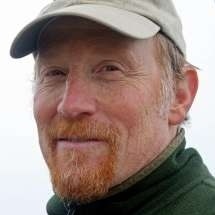Where and When:
Thursday, November 17th, 2016 at 7pm.
FSUCML Auditorium, 3618 Coastal Highway 98, St. Teresa, FL 32358
About the lecture:

"Degradation" is almost synonymous with the phrase "Caribbean coral reefs." The most commonly cited causes of decline are climate change, ocean acidification, pollution and overfishing--all of which can occur simultaneously. Dr. Bob Steneck's research on Eastern Caribben corals has been included in one of the most comprehensive studies on Caribbean coral reefs, Status and Trends of Caribbean Coral Reefs: 1970-2012 by the Global Coral Reef Monitoring Network (GCRMN) and the International Union for Conservation Network(IUCN). This publication showed that Caribbean coral reefs have declined more than 50% since the 1970s and estimated that these reefs "will be lost within 20 years without protection." Dr. Bob Steneck has studied reefs from Anguilla to Grenada, comparing reefs with "no-take" reserves and high compliance from locals to other reefs lacking these characteristics. What he found is that local management of natural areas has a strong positive effect on coral reefs, facilitating their recovery and improving their resilience and recovery.

About the speaker:
Dr. Bob Steneck (University of Maine) considers the coral reefs in the Caribbean and Indopacific oceans and kelp forests in North America as his laboratories. He has studied sea urchins, fish, corals, and lobsters as well as global climate change and the science of managing marine resources. His work on the iconic Maine lobster has lead to conservation and sustainability practices for the species and was featured in the bestselling book, The Secret Life of Lobsters, by Trevor Colson. Dr. Steneck earned his Ph.D. at Johns Hopkins University. He is a Fellow of the American Association for the Advancement of Science and a Pew Fellow in Marine Conservation.
For more information on the lecture, visit this page or you can view the event on Facebook.

